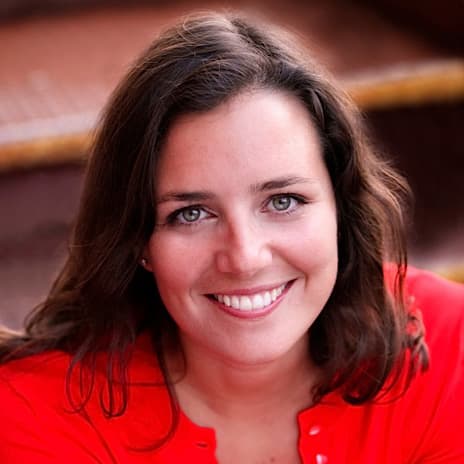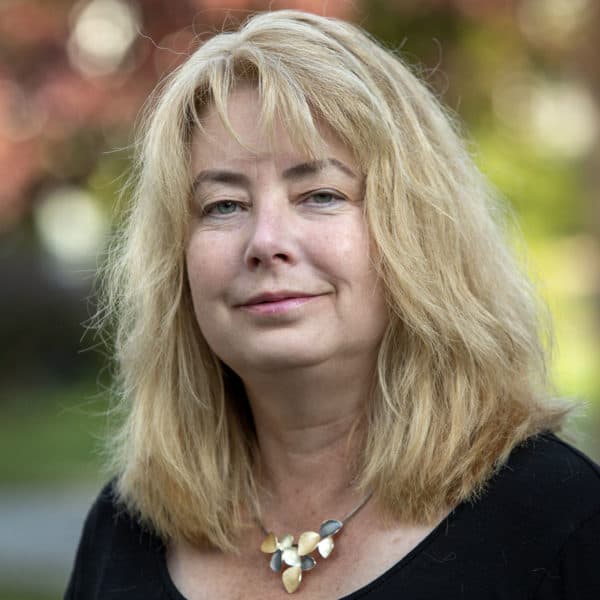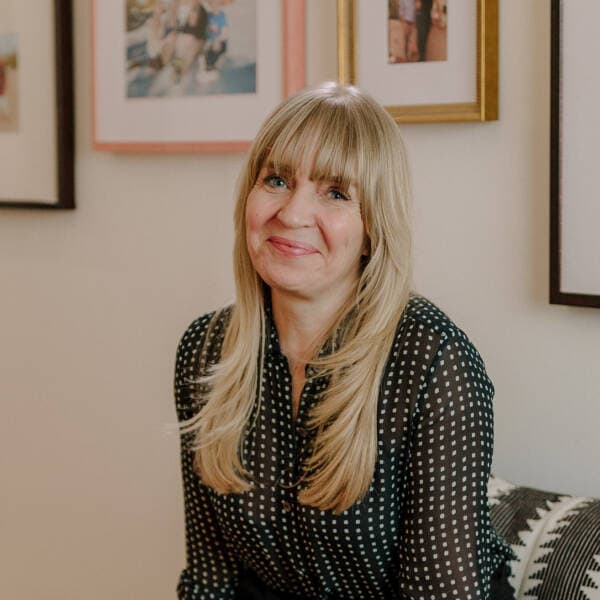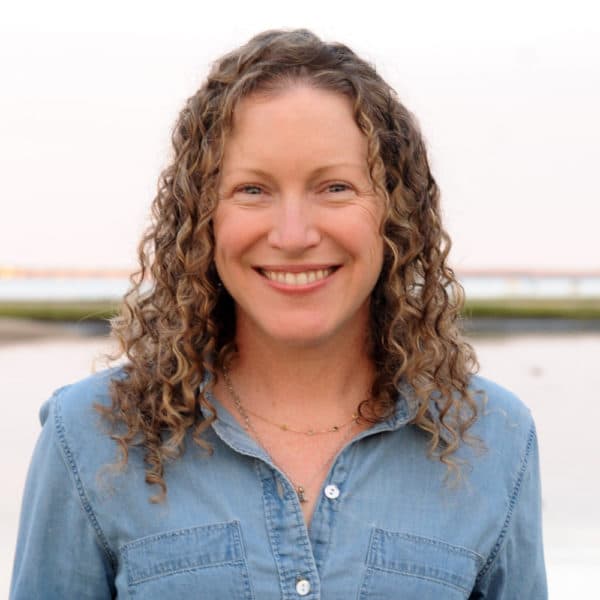Advertisement
YEAR IN REVIEW
Cognoscenti's best stories of 2023
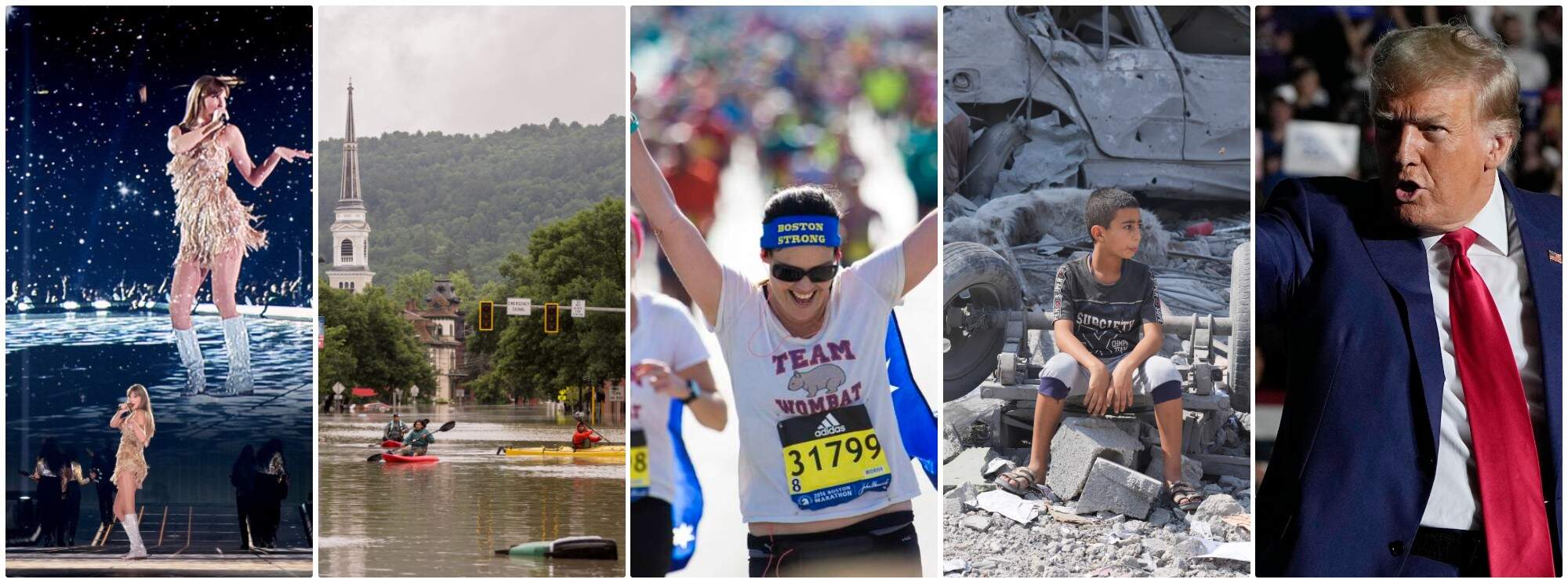
It’s always an interesting exercise for my fellow Cog editors and me to look back on the year that was, and remember where we were and what we were doing when we worked on certain pieces. In a way, it’s become part of how I mark time.
I remember reading Geri Denterlein’s first draft of her beautiful essay about losing her husband, beloved Boston Globe journalist Jack Thomas. I read it around the same time my own father-in-law was entering the final weeks of his life.
After I tried (and failed) to get tickets to see Taylor Swift in Foxborough, I worked on the most joyful piece about the concert — and motherhood — by our longtime contributor Joanna Weiss.
Many, many people, including Jane Rosenzweig, Steve Almond and H.L.M. Lee helped us make sense of the four criminal indictments of former President Donald Trump; they made us pay attention to the history unfolding before us.
Work this fall by Leah Hager Cohen, Judy Bolton-Fasman, Taymullah Abdur-Rahman and Abby Maxman helped me better understand the conflict in Israel and Gaza.
We can’t very well include 50 pieces in this compilation — though trust me, we thought about it. With this best-of list, we’ve chosen a selection of Cog’s most-read essays, and included many of our own favorites, too.
My intrepid co-editors and I like to joke that we want to "Greta Gerwig" Cog, as if the writer/director were a verb. I take it to mean that we aspire, like Gerwig, to take on topics that people think they know — life, death, love, politics — and have the confidence to believe we can find new meaning and deliver fresh insights.
In an interview in The Atlantic, Gerwig talks about how baffling she finds the concept of linear time: She told the interviewer: “And I think that in trying to pull it together and understand where you are and where you’ve been, there’s always an ache in it.”
Maybe that’s where we are, too. So many of our pieces this year were fundamentally about identity. About who we are now, and how we grapple with big questions about meaning, and loss, and purpose in a world where time keeps marching on. Not least, how often life requires more than one thing of us at a time — the inescapable both/and of it all.
Wherever you are in that swirl, thank you for giving us the gift of your attention this year.
— Cloe Axelson
10 of our most-read stories in 2023
These essays are some of the Cog pieces that garnered the most reader attention.
1. My grandmother died at home, just as she wanted. It cost $145,000
Many of us envision our final days like my grandmother did, being comfortable at home surrounded by friends and family, writes Sarah Romanelli. What a lot of people don’t know is that dying at home can cost a small fortune. (Feb. 8)
2. Many scientists don’t want to tell the truth about climate change. Here’s why
Climate scientists, in an effort to stave off despair, aren’t telling the truth about our warming planet. In reality, we're incredibly close to the point of no return: when rising seas drown island nations and almost all coral reefs die. I’m here to tell climate scientists — and my fellow climate journalists — to knock it off, writes Barbara Moran. (Oct. 3)

3. What I lost when I stopped drinking
Why did I feel like I was breaking bad news to my friends when I announced that I was trying sobriety? asks Erica Youngren. (Jan. 30)
4. I see you, Black mothers. Mother's Day is complicated for me, too
Ivy Alphonse-Crean writes that the holiday makes her stomach lurch, knowing that “mother” holds so much joy, but also, deep worry and pain. (May 12)
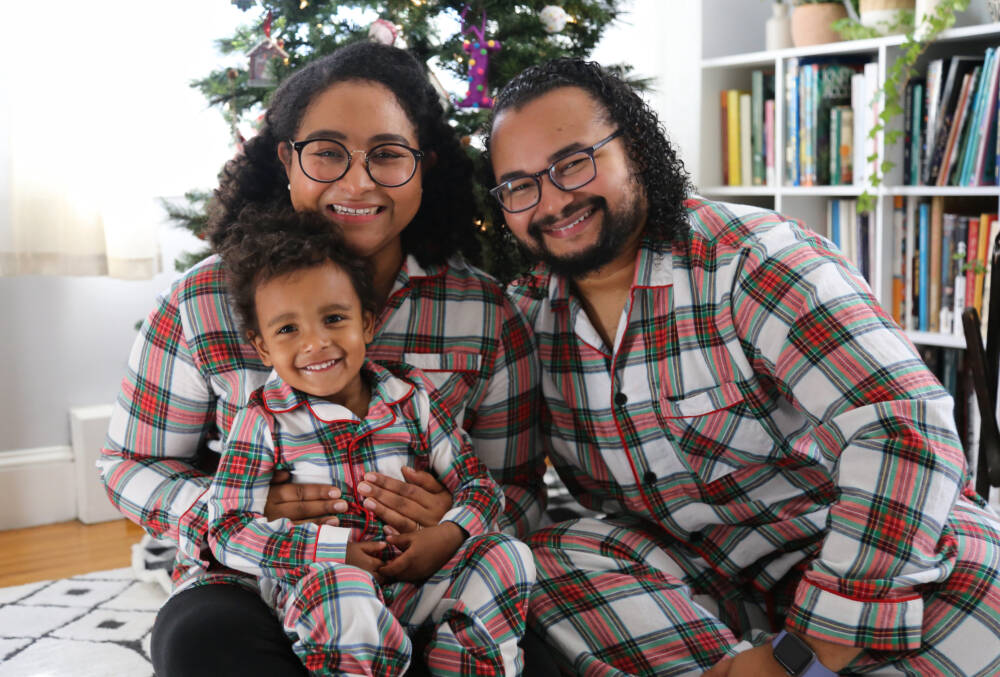
5. Why don’t we talk — really talk — about divorce?
Reese Witherspoon and her husband recently announced they were divorcing — with "deep love, kindness and mutual respect." What about grief and anxiety? asks Oona Metz. (April 6)
6. This one goes out to all the Taylor Swift parents
For the parents of Taylor Swift fans, this concert was more than an event, writes Joanna Weiss. We heard the soundtrack of our kids’ childhoods, a discography that spans nearly two decades, so long and broad and varied that it serves as a marker of time. (May 26)
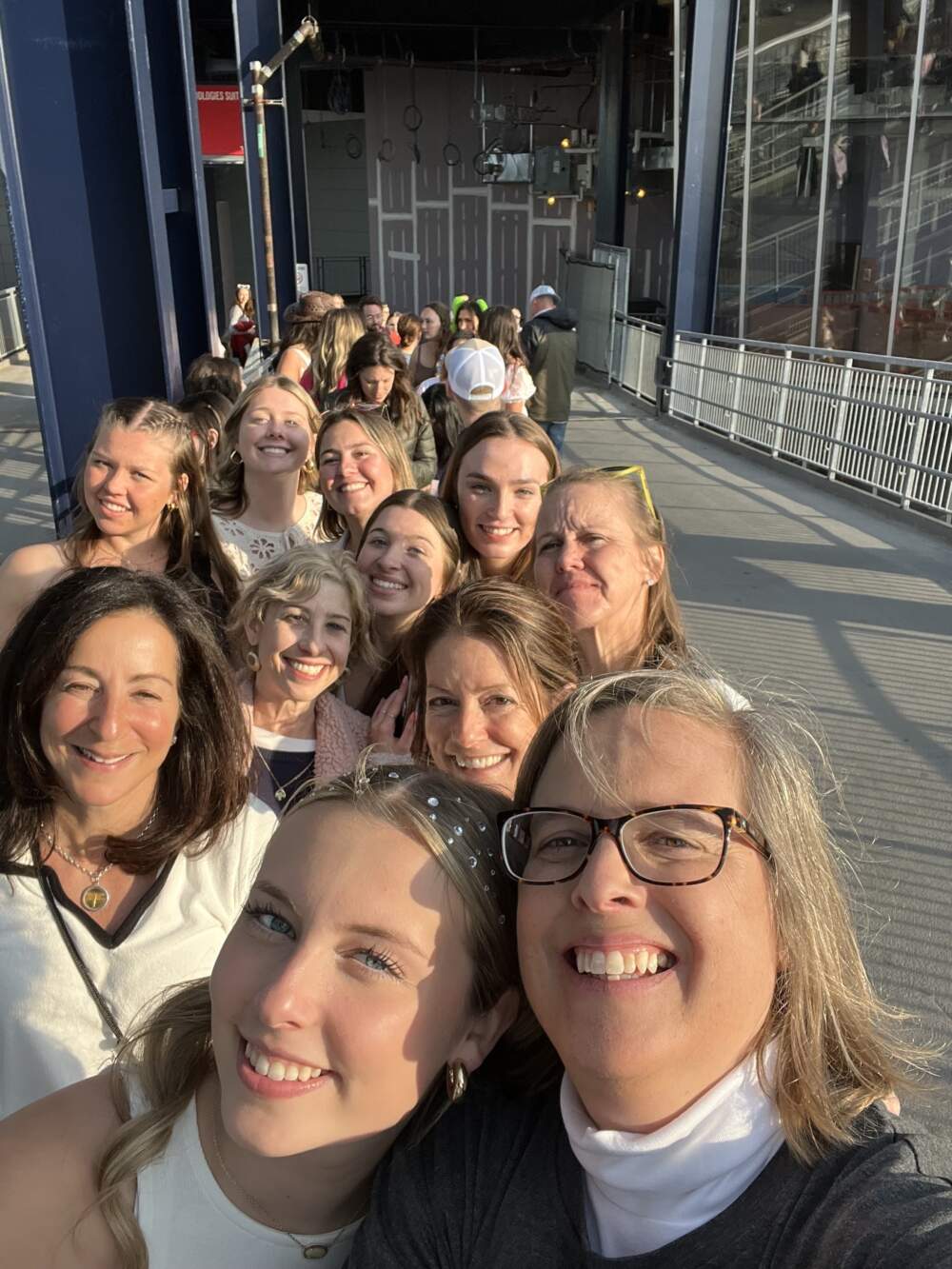
7. What the Trump indictment can teach us about good writing
The facts detailed in the indictment would be shocking no matter how they were presented, writes Jane Rosenzweig. But special counsel Jack Smith made intentional writing choices that make the document — and therefore the case against Trump — especially effective. (June 13)
8. Running with hope: The Boston Marathon, 10 years after the bombings
The unthinkable happened when two bombs went off on Boylston Street 10 years ago. But the Boston Marathon has remained an event of human triumph — that part didn’t change. (April 14)
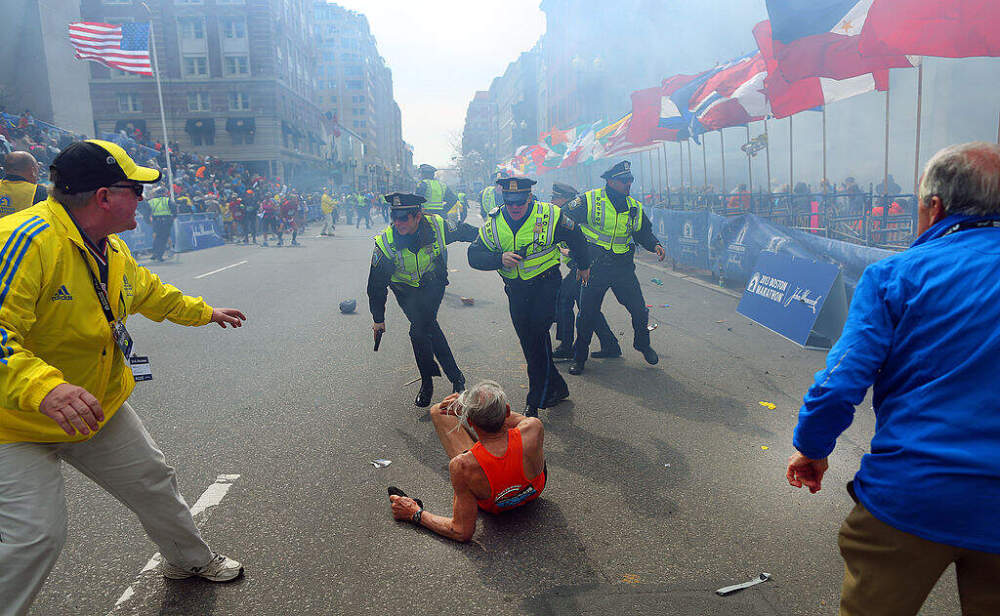
It’s ironic, but independence isn’t something you can learn all by yourself, writes Andrew Reiner. Boys need tolerant, empathetic adults — especially dads — in their lives to become self-reliant. (June 15)
10. Kate Baer has always been a writer
When Kate Baer got pregnant, unexpectedly, with her fourth child, something shifted. “I had this decision to make,” explains the best-selling author. “Am I going to drown — lose my life — or am I going to completely change everything?” (May 10)
More favorites from your Cog editors
We're grateful for our community of writers, who trust us with their stories and ideas. Below, Cog editors share what went into these essays, and why we love them.
1. Boston’s only Black hospital was founded in 1908 — in the South End apartment building where I lived
Lisa Gordon didn’t notice the plaque on her South End apartment building at first. It marked her new home as the historic site of Plymouth Hospital, “the first and only Black hospital in Boston,” founded in 1908 by Dr. Cornelius Garland. “Looking around my apartment, I couldn’t fathom how this small building had functioned as a hospital,” she writes. (Feb. 9)
SS: As Lisa and I worked together to figure out how to frame this essay, I kept asking, “How did you learn all of this? How did you find these photos? These documents?” Because Lisa isn't a historian by trade; she moved into a building she loved, and followed her curiosity. Lisa spoke with our colleagues at Radio Boston after publishing this piece, and hearing Dr. Garland’s great-grandson Dan Reppert on air was, to me, almost like a celebrity cameo.
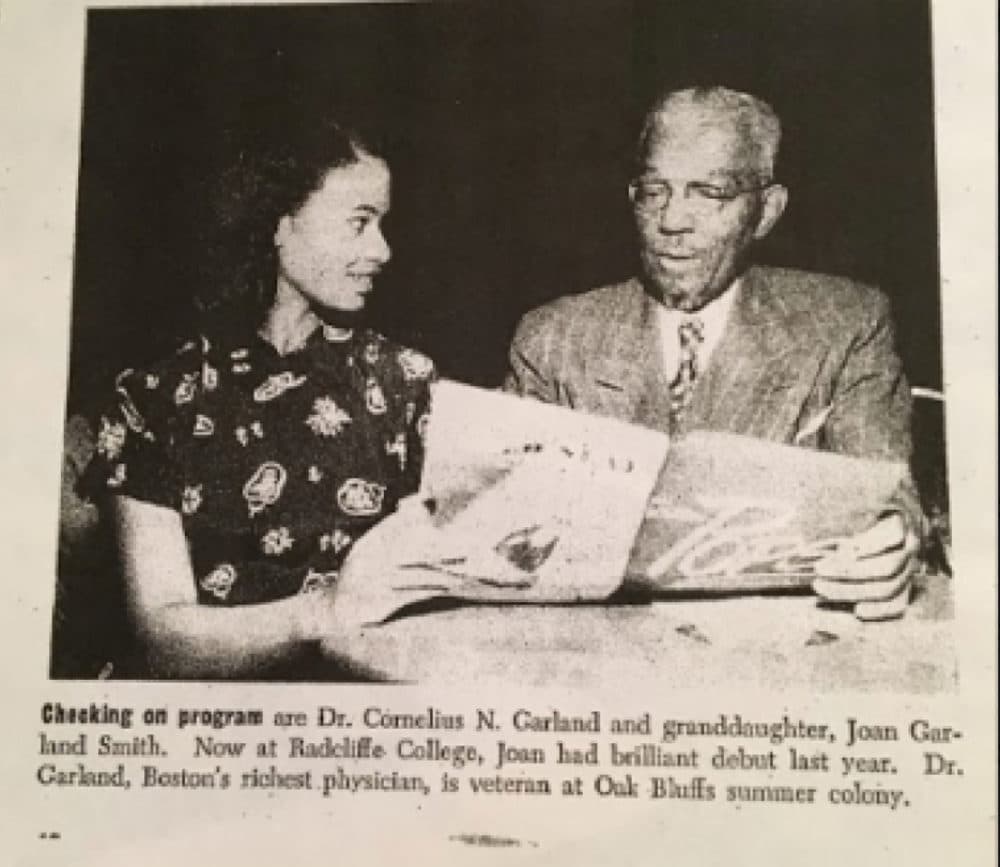
2. We spelled my children’s names in the sand
Colin Campbell's children were killed by a drunk and high driver. Three months later, he celebrated his 50th birthday. Ruby and Hart’s deaths had rendered the past 50 years of my life meaningless, he writes. How was I going to get through my birthday? How could I possibly celebrate? (Sept. 15)
KNC: Colin Campbell is an Academy Award-nominated writer and director, but he’s also the father of Ruby and Hart, who were killed in 2019. Losing both of his children — or, as Colin often says “all” of his children — taught him so much about grief that he felt compelled to share what he learned with others by writing a book, “Finding the Words.” When I read an excerpt, I knew I wanted him to write for Cog. If you’re grieving or know someone who is, this piece is a revelation.
3. We were together in the twilight of his life. And that was enough
Geri Denterlein's husband Jack Thomas spent his final days much the same way he spent most days in their 34-year relationship: reading, writing, collecting recipes, gardening and planning ahead. "It was my life that changed," Geri writes. (Sept. 22)
CA: Jack Thomas spent six decades of his career at The Boston Globe. After his terminal cancer diagnosis, Jack wrote a stunning essay for the Globe about how he intended to spend his final days. Cog aired a version of that essay on the radio. Geri’s essay aired just before the first anniversary of Jack’s death on Oct. 1. It’s a tribute to her late husband, but also an intimate look at how her own life was shaped by his illness and death. I’ll never forget the afternoon I spent with Geri at her home in Cambridge. After sandwiches, she walked me around the garden Jack watched over until his final days. What a gift.
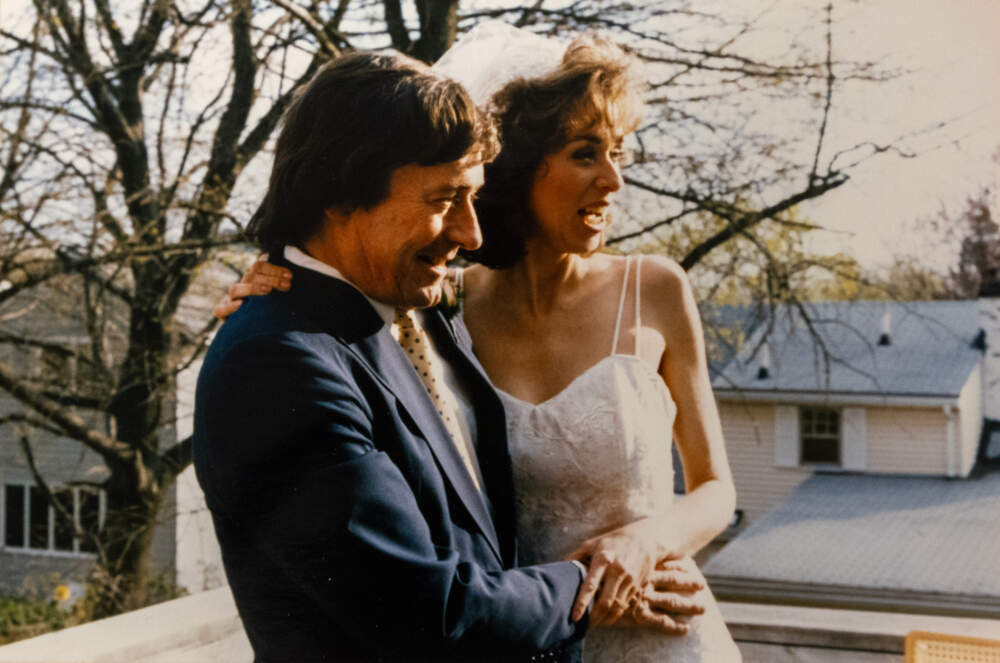
Eduardo was one of the Venezuelans flown from Texas to Martha’s Vineyard last year, placing the community in the middle of the national debate on immigration. He and his girlfriend have been bullied on social media. "[I]t takes its toll on our mental health," he says. (Nov. 17)
KB: The Venezuelans who were tricked into flying to Martha’s Vineyard found themselves in the international spotlight. I wondered what life was like for them as they searched for homes and work, their legal status still in limbo. The lawyers for the migrants helped me find someone willing to be interviewed for an “As Told To” piece.
5. We all contain multitudes. Even Barbie
There are toys that see us through stages of life, and there are people, writes Sara Shukla. Seeing "Barbie" with an old friend reminded her of all the different versions of herself, and how important it is to be seen and loved for all of them. (July 27)
CA: I’ve seen “Barbie” at least three times: alone in a theater on a Sunday afternoon; with my three daughters and mother-in-law; and at home. What I love about the movie is the same thing I love about Sara’s essay — how life, in her eyes (and Greta Gerwig’s too) can be funny and absurd and enraging and tender all at once. How we can be everything all at once. Here’s to the both/and.
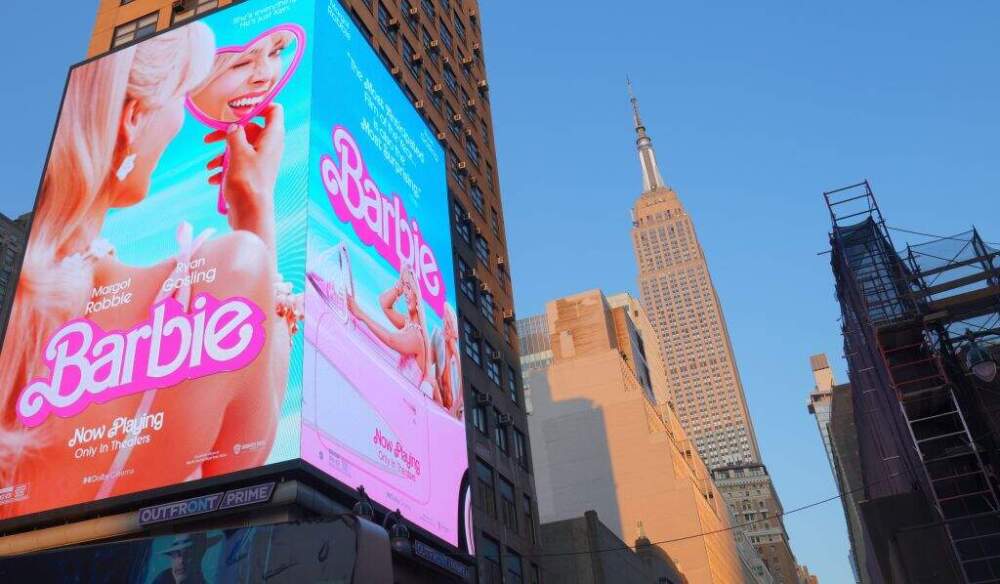
6. The fury born of moral certitude
The adrenaline-fueled contemporaneous framings of what is unfolding right now in Israel and Palestine pit wildly disparate interpretations against one another, writes Leah Hager Cohen. There is the sense that anyone offering a different interpretation from ours must be blind or monstrous or both. (Oct. 24)
CA: Since the attacks of Oct. 7, Cog has paid careful attention to the conflict in Israel and Gaza. We’ve published several essays on the topic, but I keep returning to this one, by novelist Leah Hager Cohen. She writes about the power of wonder — and how it can embolden us to empathy and action.
7. There’s no roadmap for being an adult with a disability. So I’m making my own
I wanted to live alone, go to college and find a girlfriend, writes Samuel Habib. I asked some of the most famous disability advocates for advice. (Dec. 13)
KB: I worked with Samuel’s father, Dan, a brilliant photographer, at my first job after college at the Concord (New Hampshire) Monitor. I followed his career as he made documentary films and, more recently, began working with his son, Samuel. When their last documentary — a film about Samuel’s quest for mentors — won an Emmy, I asked Samuel to write for us.
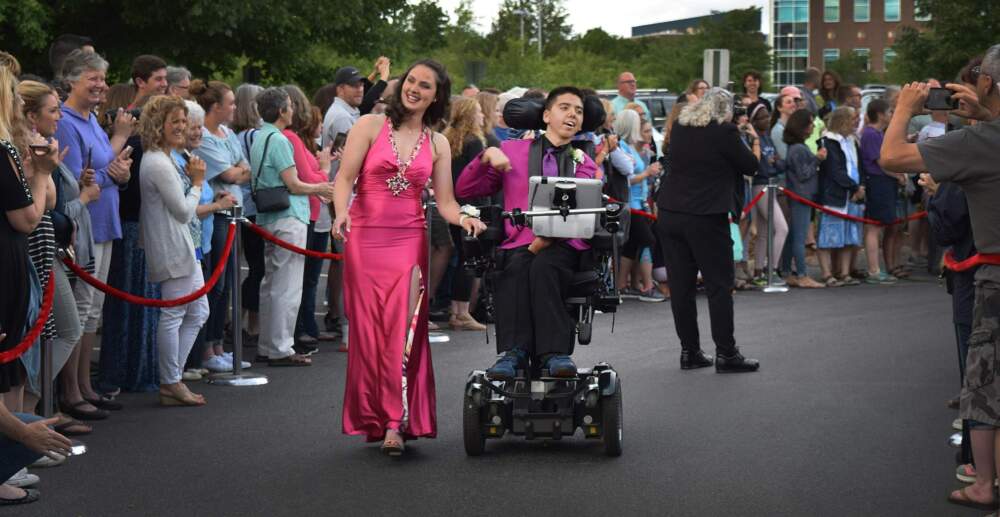
8. ‘Papi’ is the person I remember — the one from my memories
When Ethan Maggio’s 10th-grade teacher asked him to write a poem, he knew he wanted to explore his feelings about his grandfather, “Papi,” who has Alzheimer’s disease and now lives with Ethan’s family. He writes, my memories of my grandfather, and the love and affection they evoke, are as real as the devastation of what’s happening now. (June 8)
SS: Ethan’s writing found its way to us via a colleague, and we knew it was something special. Working with him on the essay that introduces his poem, sorting through family photos of him and his grandfather and recording for radio, I was continually impressed by Ethan’s skill and work ethic, but also by the way he led with his heart. This piece, to me, is also a testament to teachers — how they give students like Ethan the opportunity to find their voice, even when life isn’t easy to put into words.
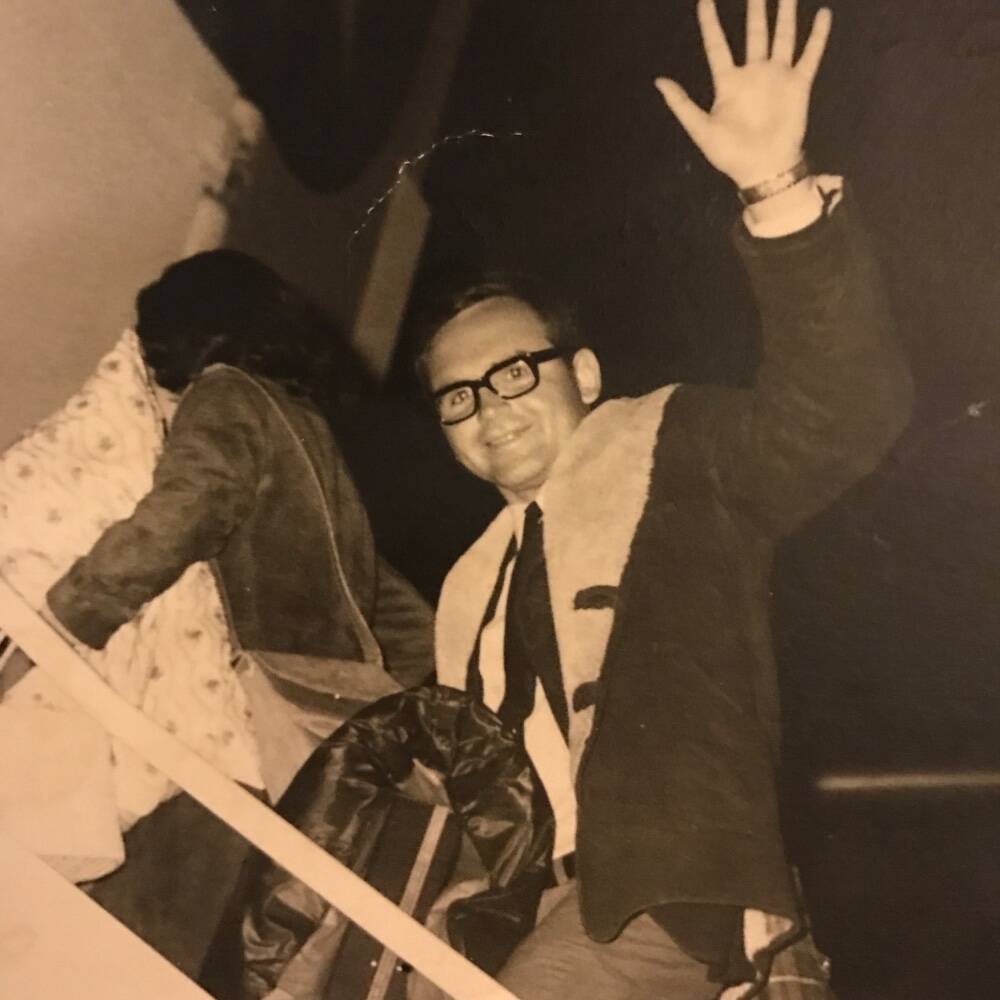
9. I didn’t want Aladdin to show me the world. My daughter had other ideas
I’d heard terrifying tales of Raffi and The Wiggles and other insidious kids’ music creators infiltrating homes like audio kudzu, but I was confident I would never cave, writes Bethany Van Delft. I would never lose this part of my identity. My baby would listen to my music the way I listened to my parents’. (Nov. 13)
KNC: When I heard a stand-up comedian was opening our Motherhood event at CitySpace in May, I was a bit skeptical. But Bethany, who is also a regular host for The Moth, is an incredible storyteller who captures the humor and heartbreak of motherhood with equal aplomb. Her opening bit was so good that I asked her to turn it into an essay for Cog. This was Bethany’s first piece for us, but I hope there will be many more.
10. ‘We all have to do this work’: Paul Farmer’s greatest legacy is the people he left behind
Dr. Paul Farmer, a co-founder of Partners In Health and a medical anthropologist affiliated with Harvard University, died, unexpectedly, on February 21, 2022. A year after his death, 10 of his colleagues and friends share what they miss and what lessons they hope to carry forward. (Feb. 21)
CA: Cog produced a piece in the days immediately following Dr. Paul Farmer’s unexpected death in 2022. For this follow-up story, I checked in on some of the people I talked to then, and also interviewed some of Farmer’s closest friends and colleagues. I asked them: How do you move forward after someone so important dies? Their answers taught me about Paul’s humanity, his humor, his big hearted-ness, and the presence of sorrow’s shadow alongside joy in all our lives.
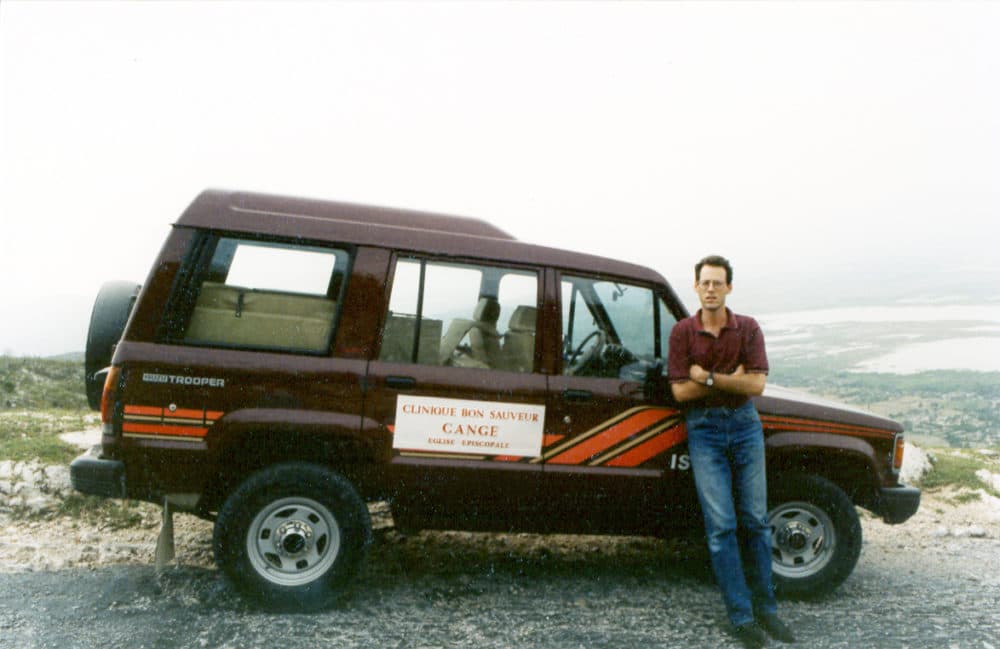
11. The ordinary and the unfathomable, all at once
I am not an anxious person by nature, writes Cloe Axelson. I don’t worry much about things that are outside of my control. I’m not in the habit of imagining mass death, but I also can’t pretend it's not happening. Not when tragedy is so ordinary. (Oct. 27)
KNC: I don’t know about you, but 2023 for me felt like it was a particularly tough year to be a parent. There were wars and mass shootings, hostages and wildfires. But there was also homework and sports practice, dentist appointments and parent-teacher conferences. How do you preserve any sense of normalcy for your kids when it feels like everything around you is falling apart? This haunting essay reminds us that in unfathomable times, we survive by “going small."
12. My hip-hop education began in the ’80s, turning the dial to Boston college radio stations
No matter how many years removed I am from being that kid scanning the radio dial, looking for my rap fix, I am still searching for that excitement, that connection and that dopamine hit that comes with discovering something new, writes historian, journalist and author Dart Adams. (Nov. 16)
KNC: Most people don’t associate Boston’s elite institutions of higher education with the history of hip-hop. I know I certainly didn’t, until I spoke with Dart Adams. Dart’s encyclopedic knowledge of hip-hop history is mesmerizing and this piece is full of imagery that will make you nostalgic for boomboxes and cassette tapes.
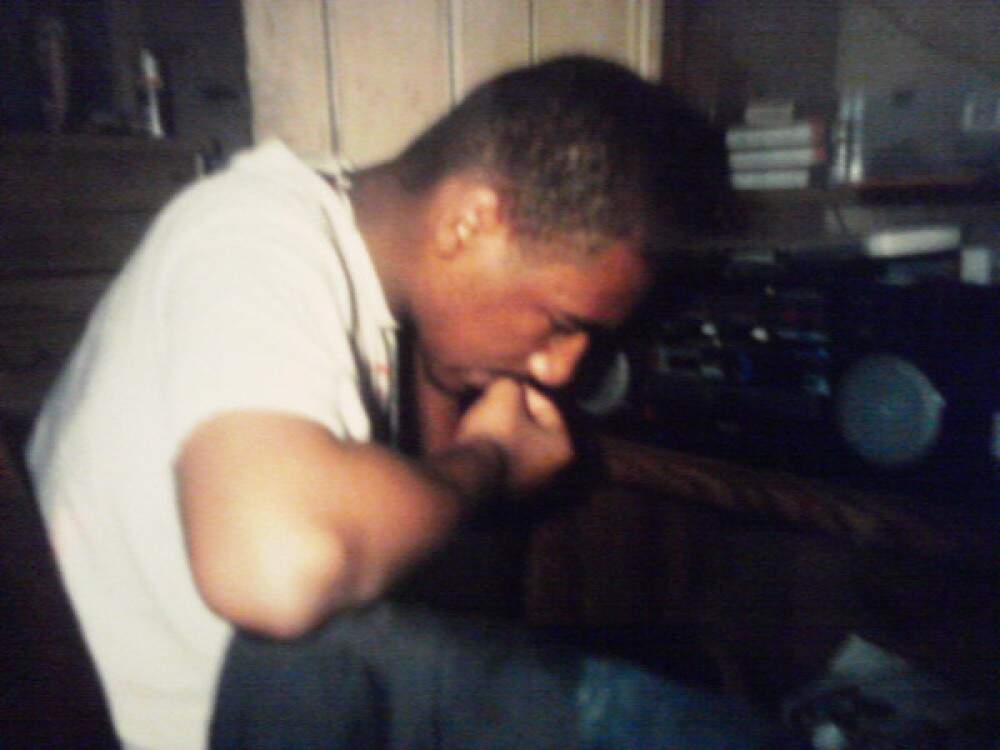
13. When I was governor, I wanted people to look beyond my hair and hemlines. I still do
I didn’t fit the profile of what a governor should look like, and I paid for it dearly, writes former Massachusetts acting Gov. Jane Swift. I’ve never forgotten that feeling. (March 9)
CA: On its surface, this piece is about what it can feel like to be a woman in spaces dominated by men. Dig a little deeper, it’s a personal, nuanced essay about social class and the muscle memory of shame. Jane told me she received an inbox full of feedback from powerful women. “My new role: truth speaker!” she told me.
14. ‘You belong here’: That’s what I tell other Black women who row
Baylor Henry rowed in the first all-Black, all-female eight boat in the Head of the Charles in 2022. She’s created an Instagram account, blackgirlsrow, to encourage other young women of color. (Oct. 20)
KB: It was a delight talking with Baylor Henry, a college junior, about her history-making rowing team in the 2022 Head of the Charles. Henry is passionate about making women of color feel comfortable in the rowing world. She’s overflowing with enthusiasm for her sport, and as a new rower, I found her joy contagious.
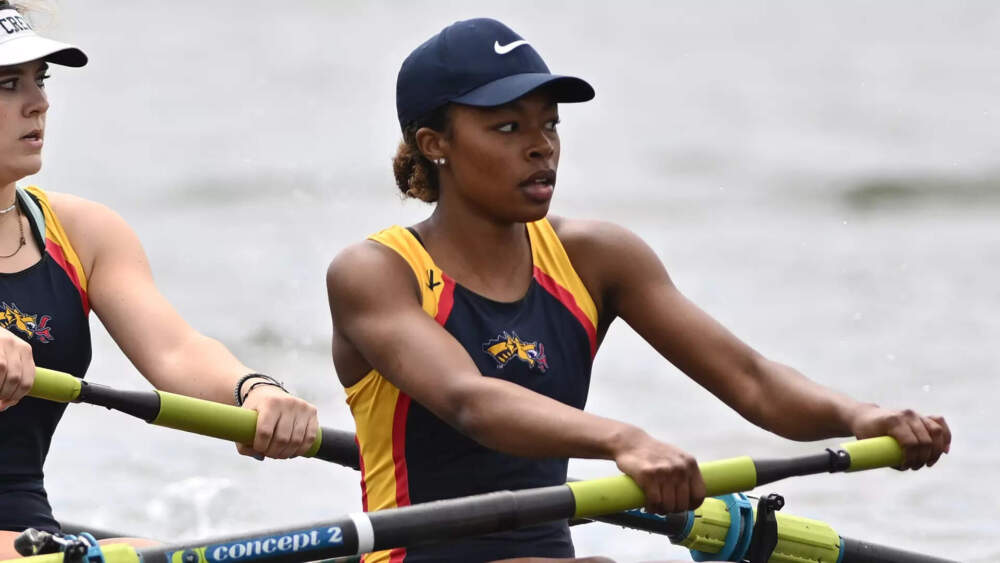
15. In the North, I found ‘little light’ but fierce friendships
If you don’t get much time with the sun, you’d better take advantage of every moment you get, writes Chris Ritter. (April 7)
SS: This essay is a lovely meditation on holding tight to what you have while you have it. When we published it in March 2023, Noah Kahan had yet to sell out Fenway Park, host SNL, or be nominated for a Grammy — he’s had a busy year — but maybe Chris knew all along that this guy from Vermont was "gonna go far." This was also one of a handful of essays inspired by music that has been a total delight to work on this year: from Death Cab and Elliot Smith, to BTS, Taylor Swift and Josh Groban.
16. ‘I’m right here. You’re not alone’: In the hospital, I can give my daughter what she needs
Since her daughter’s first seizure at 17 months, Kate Neale Cooper has spent more nights in the hospital than she can count. But it wasn’t all bad. Life has a different rhythm in the hospital, she writes — one that plants you in the here and now, one where the next step you have to take is clear. (Dec. 1)
SS: Parenting is this constant dance of control and chance, and as my kids get older I realize how little control I actually have. Kate spent years and years researching and seeking out treatment for her daughter’s epilepsy, and she found comfort in a place where life could — for a moment — feel more contained. Kate’s the parent you want in your corner, and also a gorgeous and generous writer — the ending to this essay takes my breath away every time.
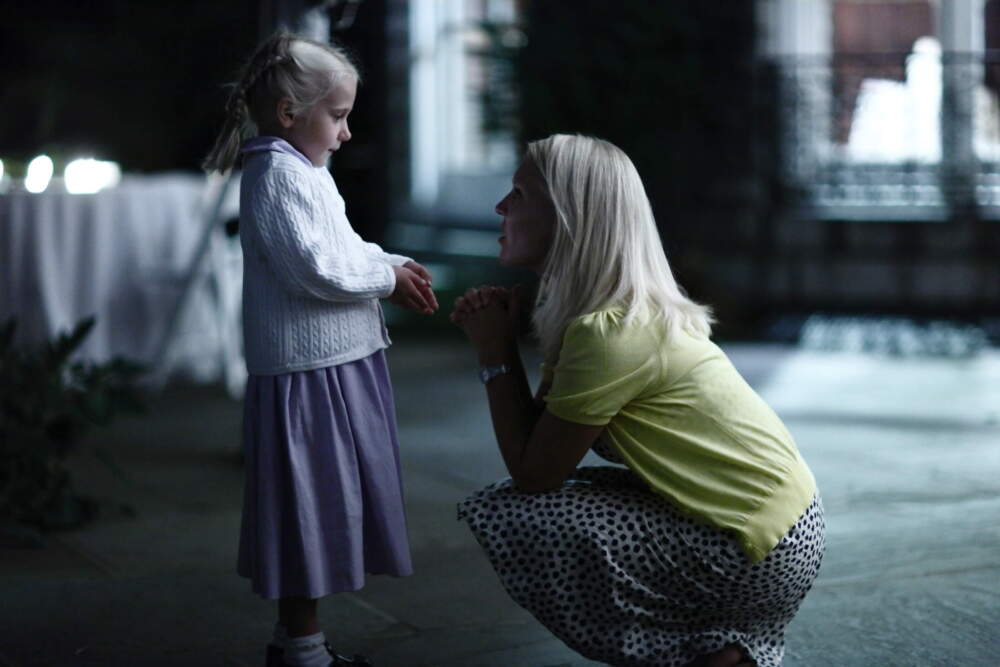
17. I've outlived four dogs. But I can't imagine life without them
Dogs show us what it means to be fully present, writes Anita Diamant. Walking with Toby, I noticed birdsong, and took deeper breaths. (Feb. 17)
KB: It’s hard not to love an essay with dogs and poetry and Mary Oliver. I’m a longtime dog-owner and Anita Diamant’s description of the ways daily walks pulled her into nature, away from her human worries, reminded me of how much I’ve learned about the night sky — the constellations and the visible planets — on my last dog walks of the day. Another part of Diamant’s essay will also be familiar to dog-owners: the too-short lives of dogs and the grief we accept when we choose to love these creatures.
18. ‘Reservation Dogs’ reminded me that I carry my Native community with me
When it comes to Native history, laughter makes as much of an impact as tears, writes Vanessa Lillie. “Reservation Dogs” reminded me again and again how community isn’t only good for the soul, but needed for survival. (Oct. 5)
SS: When my favorite TV show of the year, “Reservation Dogs,” aired its third and final season, I knew I wanted to ask Vanessa Lillie to write about it. Vanessa is a novelist of Cherokee descent, and she invites us into her connection to the show’s stunning “Deer Lady” episode — which, by the way, was just named TV Guide’s number one episode of the year. What I love about the show is how it’s so uniquely itself — how, when you put your full self into your art, that’s when the magic happens. Vanessa knows this to be true, too.
